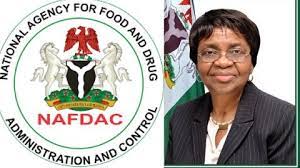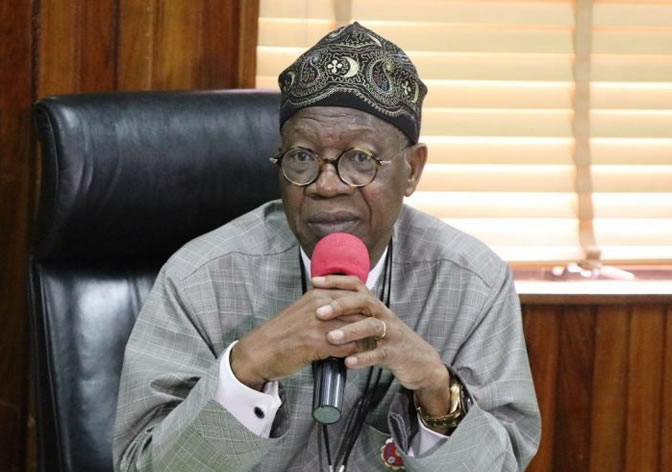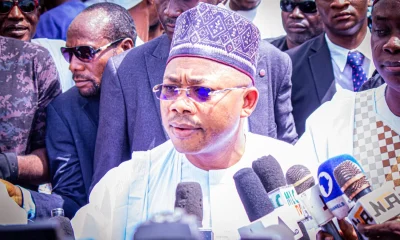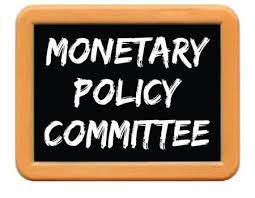Business News
Clamp Down on Portfolio Investment Firms: Failure of Regulation?

By Mike Uzor
Financial markets thrive on public confidence and that is why regulatory actions need to be weighed and counter checked and consequences of actions clearly understood and communicated before decisions that affect operators are taken and enforced.
The reported clampdown on portfolio investment firms appears to negate this regulatory decorum.
The operators and their customers in that arm of the financial markets are taping a window of a opportunity, as others are doing in the sector. Such new opportunities are welcome, as governments and regulators are unable to create sufficient opportunities to accommodate a large segment of population within the domestic economy.
Financial markets everywhere the world over are an evolution and they are yet evolving. The evolution is normally driven by the needs of the market participants – good returns to owners of financial capital and supply of capital to businesses. Ensuring an orderly functioning of the market – in which no group of participants is mistreated, is a solemn duty of financial system regulators.
In Nigeria, portfolio investment firms sprang forth from a void in the market created by poor returns on conventional financial assets in a runaway inflationary environment. Interest rates are skewed in such a manner that depositors get peanuts on their money while borrowers pay cut throat rates on loans and advances.
Head or tail the intermediaries, reminiscent of the marketing boards of old, win to the detriment of both owners and users of money and society at large. It is apparent that the unsustainable role of the intermediaries will be challenged at some point. This is clearly the opportunity that ushered in the portfolio investment firms into the financial markets.
They are a response to the yearning of the owners of financial capital to optimise the returns on their money and this is a natural tendency in the world of finance and investment. Investment capital has to find its way to the best possible combinations of risk and return.
It is the duty of regulators to ensure that this happens in a fair and firmly regulated operating environment that creates and spreads opportunities to everyone willing to play within the rules of the game in any segment of the markets whether existing or evolving.
The portfolio investment companies represent a group of outside the box thinkers as to how to create opportunities for a more productive use of capital than conventional financial services organisations are able or willing to offer. They therefore present a new competitive force in the investment market, which is needed to jolt the apparent return to armchair banking in Nigeria.
Their entry is apparently the same course that the new generation banks followed to bring innovation in customer services delivery that has worked to the benefit of the entire system. Banks have generally retreaded from customer oriented service culture and are on their ways back to the armchair banking era. And the new state is turning out worse than before.
Banks have unilaterally slashed interest rates on customer deposits on a matter of take it or leave. Even the piddling interest rate they agree to pay is usually subjected to all manner of terms and conditions that savings account holders hardly get anything at all any more on their money.
Hiding under the coronavirus environment, banks generally have moved back into shells of conservatism and complacency. They need to be jolted once again to pay depositors decent interest earnings on their funds. Not even in the era of armchair banking did banks keep customers in the heat of the sun for hours for even less than 5-minute services such as printing account statements that is happening now.
This is the entry niche for portfolio investment companies and presently the crocks of the matter that has been visited with a clampdown by security officials. How an operational issue in the marketplace would be allowed to become a criminal matter places a big question mark on the efficacy of regulatory conduct.
In the evolutionary process of Nigerian banking, a time came when non-bank financial institutions sprang forth and dominated the financial services landscape. It was a market induced development, which attracted a regulatory-based response.
The Central Bank responded by bringing them under its regulatory framework. When competition in the banking industry intensified in the late 1990s, merchant banks opted to become commercial banks. This again was a market originated pressure – which the Central Bank allowed to proceed and later on culminated in the issuance of universal banking licences.
A market originated pressure is like a surging stream that is unstoppable. The job of regulators is simply to give it an orderly course to flow. Regulators didn’t have to clamp down on the promoters of non-bank financial institutions in the 1990s because there was a sizeable demand for their services.
In the same manner, they couldn’t suppress the influx of community and later microfinance banks. They are all part of the variety of financial institutions that drive the unending sophistication and complexity of the financial system.
What a clampdown does usually is to drive the business offshore. In the case on hand, it is a market driven by innovation to meet market needs. You lock the window, you divert the flow of investment capital offshore.
Financial system regulators should be alive to their responsibility to discover current trends in the demand and supply functions of financial services and move proactively to put the rules to guide the operations ahead of time. It is rather a matter of serious concern that it is the portfolio investment firms themselves that are, on their own, calling for regulatory guidelines for their business.
It is quite disappointing that there are no regulatory procedures for handling issues concerning a group of financial sector operators as significant as portfolio investment firms with assets in the region of N1 trillion. The use of security officials with some regulatory shadows at the background to crush them as claimed, presents a big show of crude control measures in modern day financial markets.
Disorderly conduct of a few of the operators may not be ruled out in terms of honouring their obligations to investors. That is the very reason why they should be recognised and admitted into the financial system regulatory framework as quickly as possible.
Yet, the few that fail to honour their obligations cannot justify a total clampdown any more than we can reasonably shut down the highways or the airports because of reckless drivers and pilots.
The operators don’t have to show that they are significant labour employers in order to be allowed to continue to operate; that should be taken for granted. They don’t have to plead to show they contribute to GDP or consumer spending capacity; they even needed to be applauded for the courage to set up in a significantly disabling business climate that constitutes the Nigerian economy.
They are part of the engine of the new economy – the small-scale enterprises that need to be courted and not stifled. They are the economic growth drivers that future oriented economies spend a lot on financing and training to promote and to groom. They are the mustard seeds that hold the promise of great oaks of the future.
Let regulators give them the same chance they gave new generation banks to transform banking services in Nigeria. Let them have the same chance given to non-bank financial institutions, microfinance banks and other non-conventional financial institutions that are now in operation. Mike Uzor is chief financial analyst, Datatrust
Business News
NAICOM, RMAFC Collaborate on Economic Diversification

By Tony Obiechina, Abuja
The Commissioner for Insurance and CEO, Mr. Olusegun Ayo Omosehin, and his management team have met with the members of the Constitutional Committee on “Mobilisation and Diversification” of the Revenue Mobilisation Allocation and Fiscal Commission ( RMAFC) led by Engr.
Sani Mohammed Baba, to explore ways of diversifying the Nigerian economy.During their working visit to NAICOM Headquarters, Mr.
Olusegun Ayo Omosehin, in his opening remarks, reaffirmed the critical role of the insurance sector regulator in supervising, regulating, and safeguarding the interests of insurance policyholders.He highlighted insurance’s pivotal role in mobilising savings for long-term developmental projects and enabling businesses to thrive while managing risks effectively.
He also stressed the Commission’s commitment to ensuring insurance companies meet their obligations, thus contributing to the sustainability of the economy.
Speaking, Mohammed Baba emphasised the importance of revenue generation, institutional expansion, and employment creation for Nigerians through collaborative efforts.
The Commissioner for Insurance also acknowledged President Bola Ahmed Tinubu’s ambitious goal of growing the Nigerian economy to One Trillion United States Dollars ($1 trillion) by 2026.
He expressed the insurance sector’s intent to significantly contribute to this objective. Additionally, he mentioned ongoing efforts to embed insurance within the National Credit Scheme to ensure its sustainability.
Omosehin stressed the need for continuous advocacy and sensitization of government institutions about the vital role of insurance in national economic development.
Business News
CBN Unveils Strategy to Boost Remittances, Grants AIP To 14 New IMTOs

By Tony Obiechina, Abuja
The Central Bank of Nigeria (CBN) has activated plans to double foreign-currency remittance flows through formal channels by granting 14 new International Money Transfer Operators (IMTOs) Approval-in-Principle (AIP).
This was disclosed in Abuja on Wednesday, by the Bank’s Acting Director of Corporate Communications, Mrs.
Hakama Sidi Ali, who stated that the initiative will help increase the sustained supply of foreign exchange in the official market by promoting greater competition and innovation amongst IMTOs to lower the cost of remittance transactions and boost financial inclusion.She said, “This will spur liquidity in Nigeria’s Autonomous Foreign Exchange Market (NAFEX), augmenting price discovery to enable a market-driven fair value for the naira.
“It will be recalled that the CBN Governor, Mr. Olayemi Cardoso, had recently declared: “We’ve set ourselves a target to double remittance flows into Nigeria within a year, a goal I firmly believe is within reach.
“We are wasting no time driving progress to remove any bottlenecks hindering flows through formal channels permanently. We have a determined pathway and a sequenced approach to tackling all challenges ahead, working hand in hand with key stakeholders in the remittance industry,” she stated.
Continuing, Sidi Ali, said that the CBN viewed increasing formal remittance flows—one of the major sources of foreign exchange, accounting for over 6% of GDP—as a means of reducing the historical volatility in Nigeria’s exchange rate caused by external factors, such as fluctuations in foreign investment and oil export proceeds.
The increase in the number of IMTOs is one of the primary actions initiated by the CBN’s remittance task force, overseen by Governor Cardoso as a collaborative unit pulling together specialists to work closely with the private sector and market operators to facilitate the ease of doing business in the remittance ecosystem in Nigeria.
The task force was established as a direct result of an executive learning session with IMTOs during the World Bank/IMF Spring Meetings held in Washington DC, United States of America, in April 2024. The task force will meet regularly to implement strategy and monitor the impact of its measures on remittance inflows.
Business News
Tinubu Inaugurates Critical Gas Projects, Reassures Energy Sector Investors

By Matthew Dadiya, Abuja
President Bola Tinubu has reassured investors in the energy sector of his administration’s resolve to further enhance the business environment and ensure investment convenience.
The President spoke Wednesday at the inauguration of three milestone projects, including the expanded AHL Gas Processing Plant; the ANOH Gas Processing Plant, and the 23.
3km ANOH – Obiafu-Obrikom-Oben (OB3) Custody Transfer Metering Station Gas Pipeline.In a speech during the virtual inauguration of the projects at the State House, Tinubu also assured citizens that his administration is stepping up its coordination of other landmark projects and initiatives that will ensure the earliest realization of gas-fueled prosperity in the country.
The President, according to a statement by Special Adviser on Media and Publicity, Ajuri Ngelale, noted that the projects were fully in line with the Decade of Gas Initiative and his administration’s vision to grow value from the nation’s abundant gas assets, while concurrently eliminating gas flaring and accelerating industrialization.
“This event is highly significant to our country as it demonstrates the administration’s concerted efforts to accelerate the development of critical gas infrastructure geared at significantly enhancing the supply of energy to boost industrial growth and create employment opportunities.
“It is pleasing that when these projects become fully operational, approximately 500MMscf of gas in aggregate will be supplied to the domestic market from these two gas processing plants, which represents over 25% incremental growth in gas supply.
“In practical terms, this is more gas to the power sector, gas-based industries, and other critical segments of the economy. I, therefore, commend the strategic vision of the NNPC Limited and its partners, Sterling Oil Exploration & Energy Production Company Limited (SEEPCO) and Seplat Energy Plc, for this laudable and value-adding projects,” President Tinubu said.
The President said his government remains determined in its bid to leverage the nation’s vast gas capacity to drive economic growth.
“Aside from the presidential CNG initiative which is aimed at moving the good people of Nigeria away from petrol and diesel as vehicular combustion fuel, significant progress has also been recorded in incentivizing gas development through Presidential Directives.
“The theme of this inauguration – ‘From Gas to Prosperity; Renewed Hope’, must be adopted by all gas-sector participants and would-be investors as a clarion call to ramp up efforts to accelerate investment and developments of projects in the gas sector on a win-win basis.
“I would once again commend the efforts of NNPC Ltd, alongside SEEPCO and Seplat Energy, on this business partnership initiative, and congratulate you all on the successful implementation of the three projects,” the President said.
President Tinubu also reiterated his government’s resolve to continue to provide support in deepening domestic gas utilization, increase national power generation capacity, revitalize industries, and create multiple job opportunities for economic growth.
“Today, I have the singular honour to inaugurate the expansion of the AHL Gas Processing Plant, the ANOH Gas Processing Plant, and the 23.3Km ANOH to Obiafu-Obrikom-Oben (OB3) Custody Transfer Metering Station Gas Pipeline Projects in line with my administration’s resolve to provide energy for Nigerians, and to use our vast natural gas resources to transform Nigeria,” the President stated.
May 15, 2024


























